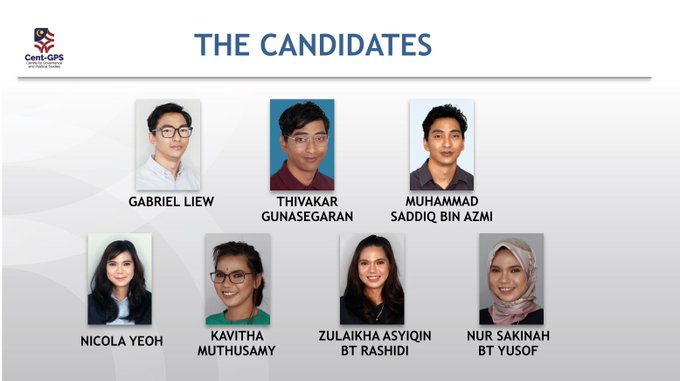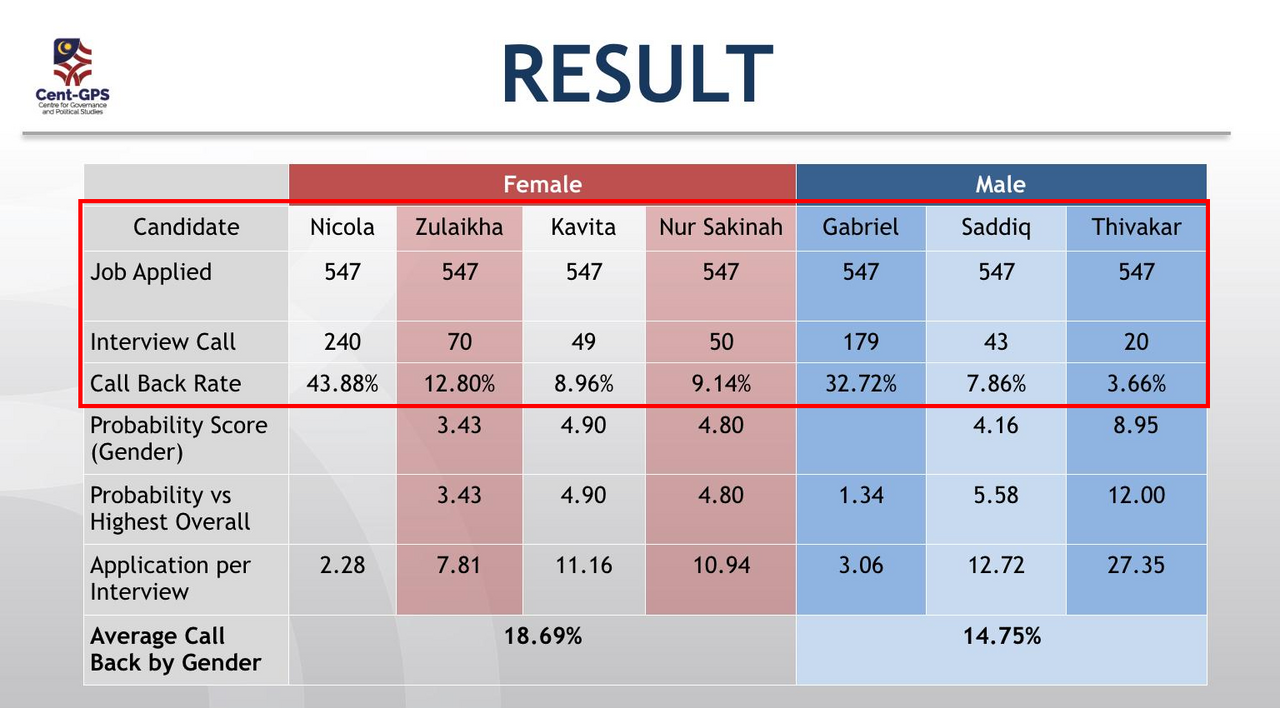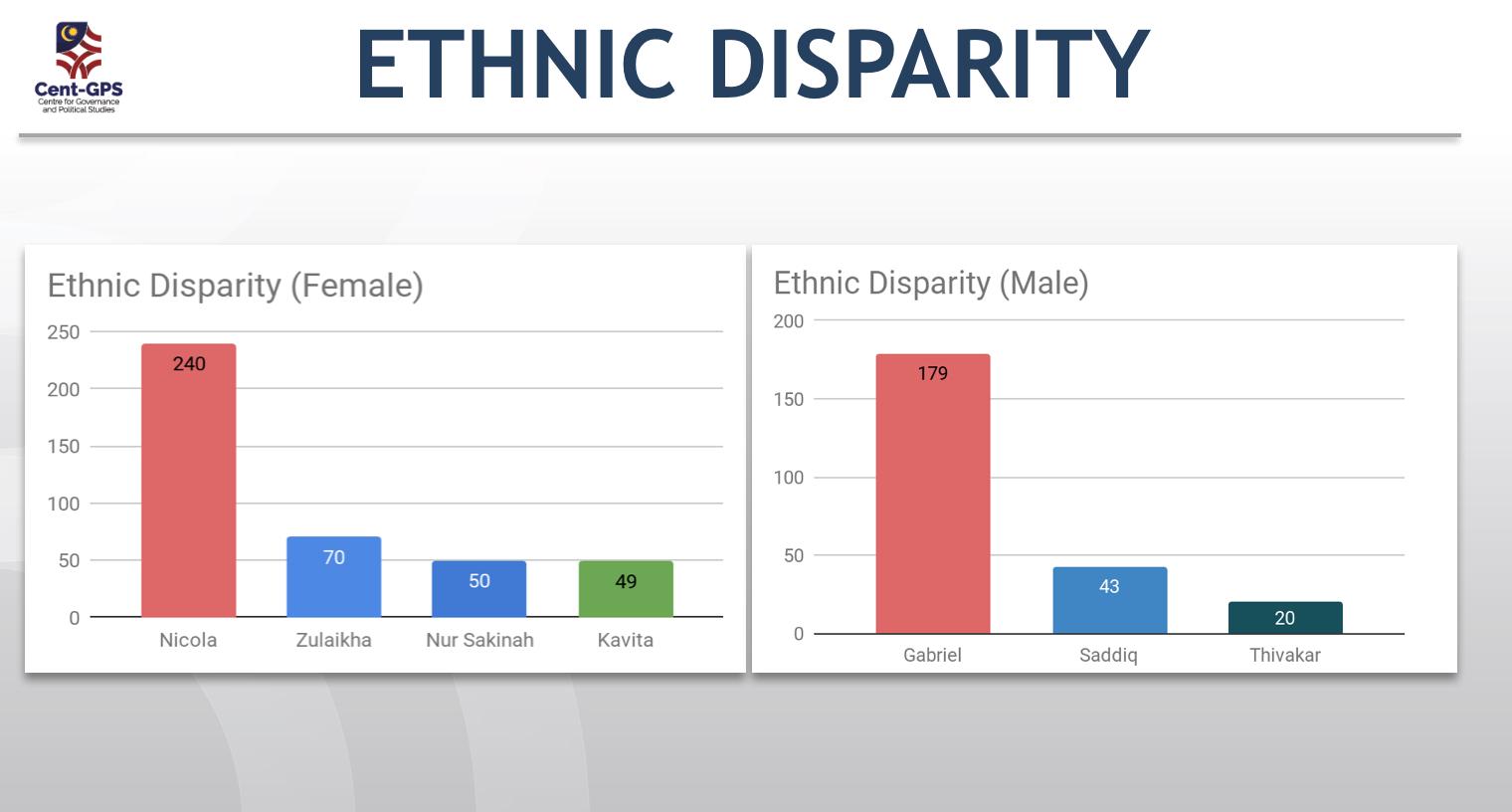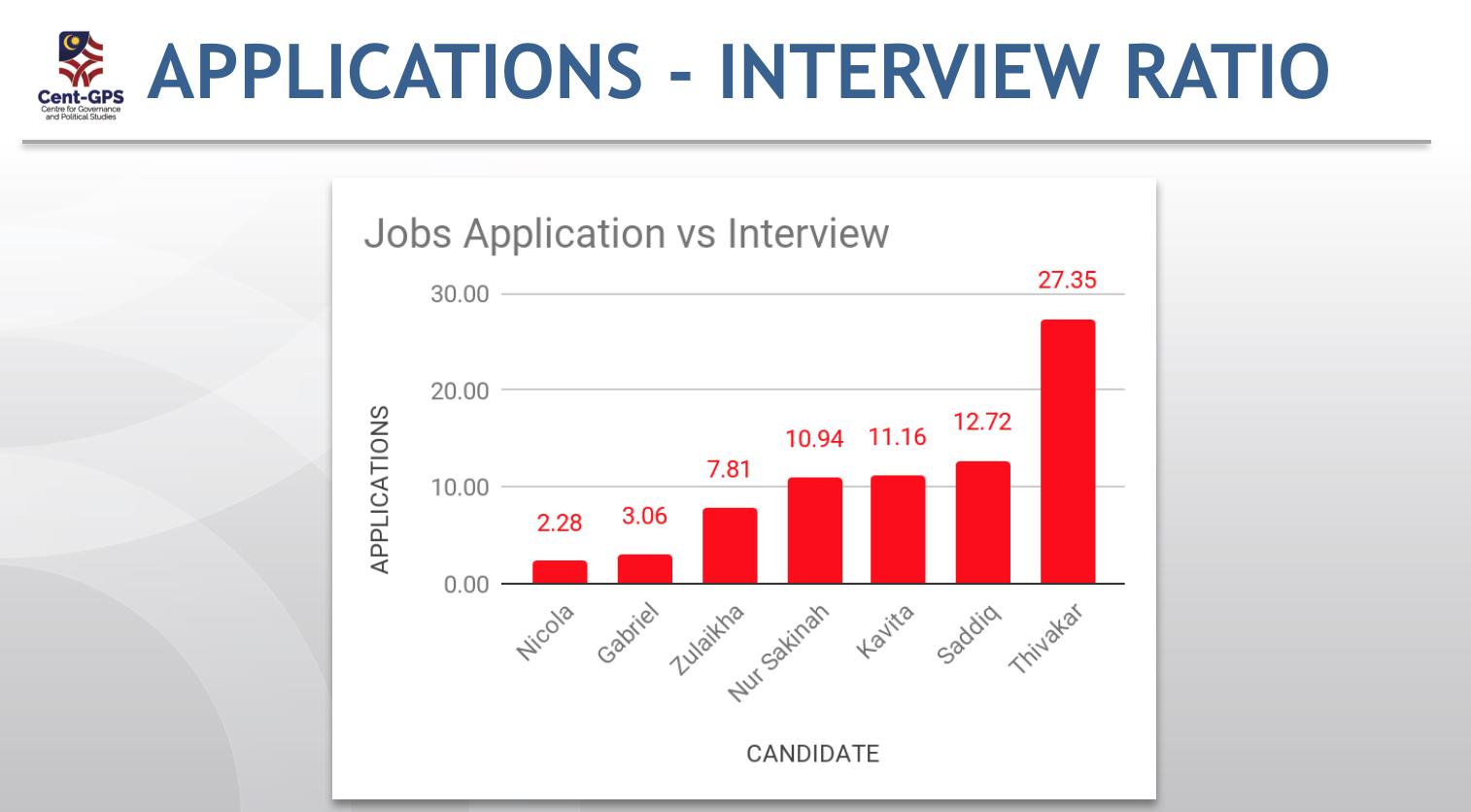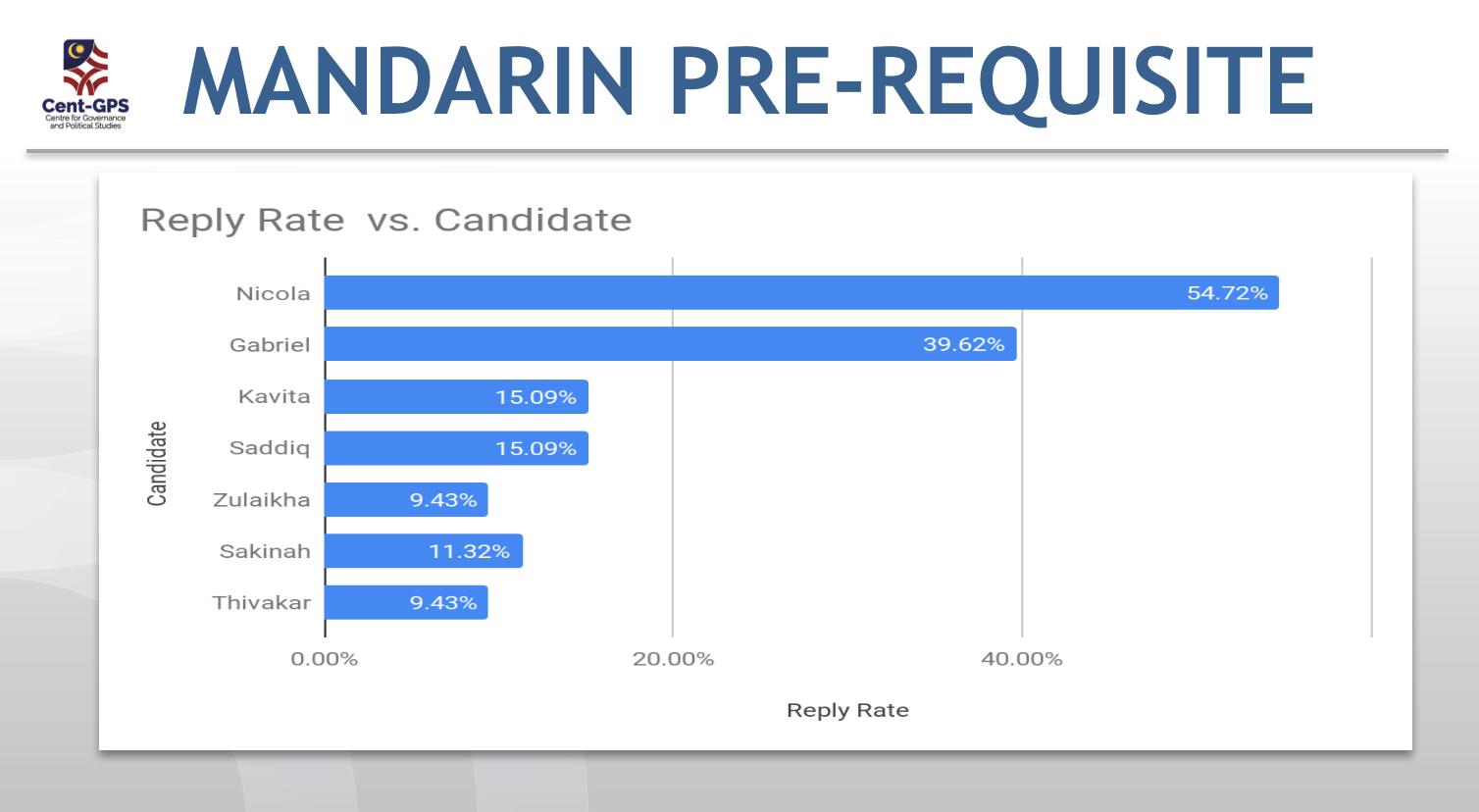Study Shows Malay & Indian Grads Still Face Discrimination Despite Being Mandarin-Speakers
Cent-GPS sent 3,829 job applications from seven candidates of different ethnicities for the study.
Are employers in Malaysia truly in need of Mandarin-speakers... or is it simply a smokescreen to mask racism?
Those are the questions Cent-GPS, a KL-based behavioural and social science research firm, sought to answer in its recent study of racial bias in the private sector.
Cent-GPS - short for Centre of Governance and Political Science - modelled its study after research papers by local academics Dr Muhammad Abdul Khalid and Hwok-Aun Lee, both of whom have been studying discrimination in the country's workforce for years.
The think-tank's website names UMNO Senator Khairul Azwan Harun as one of the key people behind it, alongside Dr. Hamidin Abdul Hamid (Deputy Dean of Universiti Malaya's Faculty of Arts and Social Sciences) and Dr. Renard Siew.
Over the past few months, Cent-GPS sent 3,829 job applications to over 500 jobs. For each job vacancy, the team submitted resumés from seven candidates representing different genders and ethnic groups:
2. Zulaikha Asyiqin binti Rashidi, a Malay female;
3. Kavitha Mutusamy, an Indian female;
4. Nicola Yeoh, a Chinese female;
5. Thivakar Gunasekaran, an Indian male;
6. Gabriel Liew, a Chinese male; and
7. Muhammad Saddiq Azmi, a Malay male.
To level the playing field, all seven resumés had similar qualifications:
- They all had a Bachelor's degree in Business;
- They all had the same CGPA level (Second Class Upper);
- They were all fresh graduates from a local private university;
- They all served a three-month internship at a reputable institution;
- They all resided in Kuala Lumpur or Selangor;
- They were all fluent in English and Malay; and most importantly,
- They all had "intermediate" proficiency in Mandarin.
Passport-sized photos of the candidates were also inserted in the resumé.
Here's where things got interesting - the candidates' photos were actually of the same person!
Make-up was applied to both the male and female "candidates" to suit their assigned ethnicity, but they all had the same physical features to ensure that no one candidate was better looking than the other.
Hence, the only differences between the seven resumés were their names and the candidates' skin colour.
1. Both male and female Chinese candidates obtained more callbacks for interviews compared to their Malay and Indian peers combined
Female Chinese (FC) candidate Nicola received 240 callbacks out of 547 jobs applied to (43.88% callback rate), while male Chinese (MC) candidate Gabriel received 179 (32.72%).
The three lowest scoring candidates are Indian female (IF) candidate Kavitha with 49 callbacks (8.96%), followed by Malay male (MM) candidate Saddiq (43 callbacks, 7.86%), and Indian male (IM) Thivakar with a dismal 20 callbacks (3.66%).
2. To put things into perspective, FC Nicola just had to apply for two jobs to get a callback, while IM Thivakar only received one callback out of 27 job applications
3. The "Mandarin-speaking requirement" is just a smokescreen to hire Chinese candidates
Remember, all candidates had listed their Mandarin proficiency as "intermediate" in their resumés.
And yet, FC Nicola and MC Gabriel received far more callbacks (54.72% and 39.62% callback rates respectively) from Mandarin-required companies. In fact, less than 10% of the companies Malay female (MF) candidate Zulaikha and IM Thivakar applied to responded to their applications.
4. A Malay female candidate who is not wearing a hijab is more likely to get a callback compared to one who wears hijab
Zulaikha (who did not wear a hijab) got a callback from 13% of the companies she applied to, while hijab-wearing Nur Sakinah only had a 9.14% callback rate.
As such, Zulaikha had a 40% advantage over Nur Sakinah despite having the similar resumés and qualifications.
Cent-GPS' study draws a devastating picture of job prospects for candidates of different ethnicities in the private sector, especially for fresh graduates of Indian and Malay descent
"It shows us just how discriminatory our private sector really is. Even as candidates had the same qualifications, education and experience, the ethnicity of a candidate still plays a vital role in the success of a job application," the firm wrote in a press statement sent to SAYS.
"If this trend continues, many more will be marginalised simply due to the colour of their skin. Hard-working Indian and Malay students will not get the opportunity they deserve, creating a dangerous future of inequality and social instability."
